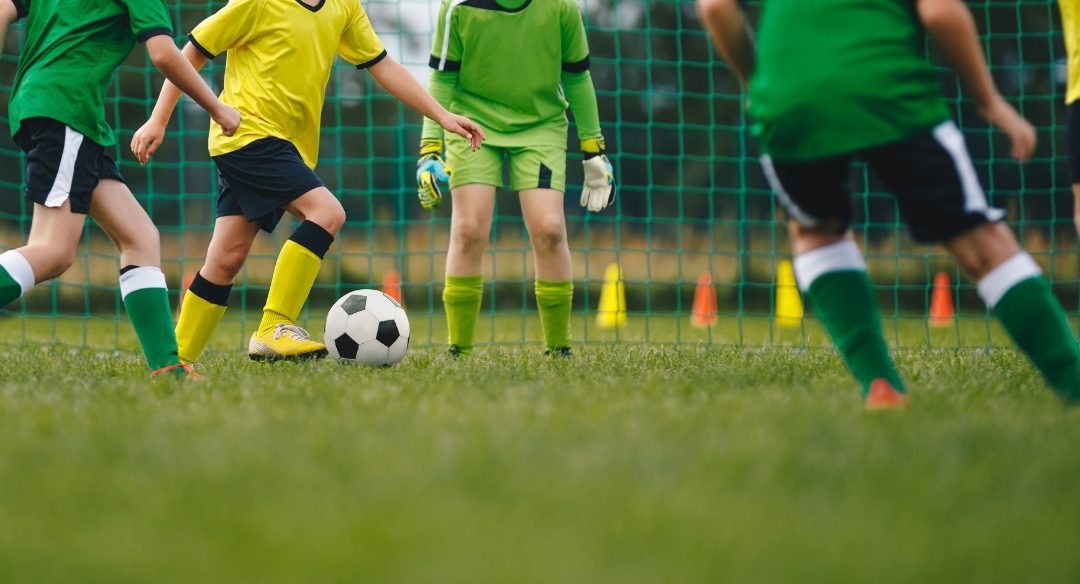
by Roseman Dental | Apr 18, 2023 | Dental 360, Dental Clinic Blog, Oral Health, Roseman Dental - NV, Roseman Dental - UT
Your teeth are important for everything from eating and nutrition to proper speech, so an injury to your teeth can have much larger implications than just affecting your beautiful smile. When engaging in certain kinds of physical activity, your mouth is potentially at risk for injury causing knocked-out teeth and injuries to the gums, lips, tongue, and surrounding tissues. Make sure you are always careful and take preventative measures to ensure you teeth and mouth stay healthy and injury-free.
Situations Where Tooth and Mouth Injuries Are Common
Most of your daily activities won’t put you at risk for tooth injury, but in the following situations you will want to have a mouth guard or take other precautions to prevent injury.
- Babies and toddlers who are learning to walk will stumble and fall a lot. It is important to keep an eye on them to make sure they are careful, and if they are in this early stumbling phase, don’t let them practice on a hard surface like concrete or asphalt.
- Sports injuries are a common reason for a visit to a dentist. Anyone who plays contact sports, such as boxing, football, basketball, soccer, or lacrosse needs to always wear a mouth guard. Even heavy physical exertion offers an opportunity to fall down and chip a tooth, so while it may not require a mouth guard, be sure to take care and watch your step!
- Some people experience tooth pain when they wake up after sleeping for the night. If you are one of these, you may be grinding your teeth in your sleep. A visit to a doctor or dentist will reveal if your tooth damage is the result of grinding and your dentist can help you decide if wearing a mouth guard when you sleep is the best option.
You don’t have to avoid risky situations to avoid mouth injury. Just make sure to take the appropriate precautions before you go at it.

by Roseman Dental | Oct 5, 2022 | Dental Clinic Blog, Oral Health, Roseman Dental - NV, Roseman Dental - UT
Trick-or-treating is the highlight of Halloween for most children, but excessive candy consumption can be harmful to a child’s dental and physical heath. Halloween doesn’t have to be a sugar-laden free-for-all. There are many ways to limit your child’s sugar intake without a making a scary scene.
- Collect Less Candy – Limit the amount of candy your child collects by having her use a smaller treat bag and calling it quits once the bag is filled. You can also set a time limit on her trick-or-treating or visit only houses within a certain walking distance.
- Trade Candy For Cash – Many dentists participate in a candy buyback program. If yours doesn’t, consider forking out some of your own cash in exchange for your kid’s candy, then donate the stash to a local shelter or a branch of the military.
- Plan a Visit From the Candy Fairy – If your child is too young to be interested in cash, consider swapping the loot for a toy they have had their eye on. Instruct your child to leave the goodies in a special location, and make the trade while they are asleep.
- Ration the Goodies – Let your child pick out a few of his favorites on Halloween night, then store the rest out of sight and out of reach. Pack one small piece in his or her lunch each day, or save it to dole out only on special occasions.
- Pass Out An Alternate Treat – You can do your part to limit junk food in your neighborhood by passing out something other than candy. Stock up on stickers, glow sticks or another prize to give away, and encourage your neighbors to do the same.
However you choose to prevent sugar overload this holiday, be sure your child knows what to expect beforehand. Fill her up with a healthy dinner before she begins knocking on doors, and allow a little indulging before the night is over. Have a plan for the rest of the candy, and no matter how late your little ghoul is up, don’t send her to bed without brushing!

by Roseman Dental | Oct 1, 2022 | Dental Clinic Blog, Oral Health, Roseman Dental - UT
Brushing and flossing regularly are essential habits for healthy teeth, but did you know that nutrition is also important to the overall health of your mouth? It’s especially important to help kids start healthy eating habits while they’re young and their teeth are still developing. Here are the top nutrition tips to keep your family’s oral health strong.
1. Don’t Put the Baby to Bed with a Bottle
Many people like to put their baby to bed with a bottle of milk or other drink. However, this seemingly harmless practice actually allows bacteria to flourish and can lead to tooth decay. Giving your baby a bottle at night is okay, but make sure you follow it up with a gentle tooth-brushing session (or simply wiping their gums with a warm washcloth if they don’t have teeth yet) before putting your baby in bed.
2. Eat Plenty of Fresh Vegetables and Fruits
The standard American diet is extremely high in sugar. While avoiding sugar entirely may not be practical, it is best to limit consumption of sweets and sodas since they increase the risk of cavities. Even so-called “fruit” drinks contain highly concentrated amounts of sugar and should not be consumed in excess. Make sure to check the nutrition facts to get the real scoop on how much sugar is involved, even if a beverage claims to be fruit-based. If you or your children do have sweets, make sure to brush soon afterwards.
3. Avoid Sugary Foods
The standard American diet is extremely high in sugar, and while it may not be practical to avoid sugar altogether, it is best to limit consumption of sweets and sodas since they increase the risk of cavities. Even so-called “fruit” drinks contain highly concentrated amounts of sugar and should not be consumed in excess. If you or your children do have sweets, make sure to brush soon afterwards.
4. Drink Water with Food
Drinking water with each meal helps to wash away food particles and bacteria that might otherwise become stuck on or between the teeth and contribute to tooth decay. Taking a drink of water immediately after a meal serves the same purpose and can keep your mouth from becoming too dry.
A nutritious diet is just as important for oral health as brushing and flossing. Improving your current diet can be as easy as adding an extra portion of vegetables or fruit to a meal, eating fewer sweets, and increasing your water intake. Small changes can make a big difference.
Talk with your dentist about how your nutrition and oral health are connected. If you don’t have your next check-up on the calendar yet, make an appointment with Roseman Dental for affordable quality dental care.

by Roseman Dental | Sep 7, 2022 | Dental 360, Dental Clinic Blog, Oral Health, Roseman Dental - NV, Roseman Dental - UT
Periodontal disease occurs when the plaque that adheres to the teeth is not effectively removed. Plaque forms when bacteria in the mouth combine with mucus, creating a sticky and damaging substance that attaches to the teeth. Brushing and flossing regularly does certainly help minimize the formation of plaque, but any plaque that remains often turns into something called tartar, which cannot be easily brushed or flossed away at home. This is just one reason regular dentist visits are so essential!
To reduce the chances of developing gum disease, it’s important to recognize risk factors. Here’s a look at some of the things that commonly lead to gum disease and ways to prevent them from getting that far:
Genetic Makeup
Each person’s genetics play an important role in determining how healthy their teeth and gums are. So much so, in fact, that some researchers believe that as much as 30% of the population is especially susceptible to gum disease. However, even those who are predisposed to the issue can dramatically reduce their chances of developing it simply by engaging in strong oral hygiene practices. In this case of nature vs. nurture, go for nurture.
Stress Levels
While stress in and of itself isn’t a direct contributor to periodontal disease, it has a tendency to weaken the overall immune system. This means that fighting off infections will be tougher in general. In other words, if you’re in the beginning stages of gum disease and are particularly stressed out, it will likely exacerbate the problem. Talk to a doctor if you need help managing stress and its affects.
Smoking Habits
If someone doesn’t already suffer from periodontal disease, smoking may cause it to develop. If someone is a smoker and already has symptoms of gum disease, continuing the habit will only make the problem worse. The more someone smokes, the greater their risk, so cutting down an existing habit (or better yet, quitting entirely) can pay off in the form of improved oral health.
There are many risk factors associated with periodontal disease. The easiest and most effective ways of reducing the chance of developing it is to practice strong brushing and flossing habits, and visit the dentist at regular intervals. If your next appointment isn’t on the calendar yet, make one with Roseman Dental to keep those gums and teeth healthy.

by Roseman Dental | Apr 11, 2022 | Dental Clinic Blog, Oral Health, Roseman Dental - NV, Roseman Dental - UT
It is important to keep your teeth protected during physical activity because that is the most likely time they will suffer damage. Your teeth aren’t just there for your smile—a complete set of chompers is necessary to bite, chew, and speak!
April is National Facial Protection Month. The American Dental Association is teaming up with the American Association of Orthodontists, the American Association of Oral and Maxillofacial Surgeons, and the American Association of Pediatric Dentistry to spread awareness about the importance of using a mouthguard for dental protection in sports and other outdoor activities.
Sports Where Mouth and Facial Injuries are Most Likely
There are a few sports where players commonly wear mouthguards. This important tooth protection should be worn even during practice sessions with these intense physical activities:
- Boxing. Because participants will hit each other in their faces extensively, wearing a mouth guard is absolutely essential. In fact, boxing is the only professional sport requiring mouthguards.
- Football. Players wear helmets that provide a firm layer of facial protection. As an added precautionary measure, they are also required to wear mouth guards under the grills of their helmets, preventing the possibility of painful and inconvenient tooth injuries.
- Martial arts. Mouth protection is necessary in the sparring ring. In Olympic sparring, the head is an area where a blow will score a point, making the face and mouth vulnerable to accidental injury.
The National Federation of State High School Associations and the National Collegiate Athletic Association also require mouthguards in ice hockey, field hockey and lacrosse. Those sticks pose a real danger to the teeth!
While these are some sports where athletes commonly wear mouthguards, dentists recommend a mouthguard for any contact sport or activity that could lead to mouth injury. That includes everything from soccer and basketball to biking, skateboarding and surfing.
Parents and coaches are responsible for setting an important teeth-saving tone: mouthguards should be non-negotiable in any contact or high-velocity activity, whether it’s competitive or just for fun. Athletes who wear mouthguards are between 82% and 93% less likely to experience dental injuries like crown fractures and complete tooth displacement.
A mouthguard must fit properly to effectively reduce the risk of dental injuries. Sporting goods stores sell semi-fitted mouth guards that you boil and bite to conform to the shape of your teeth, but an even better idea is to visit your dentist to get a custom guard made specifically for your mouth. Keeping your bite pristine is an important part of any athletic activity.







